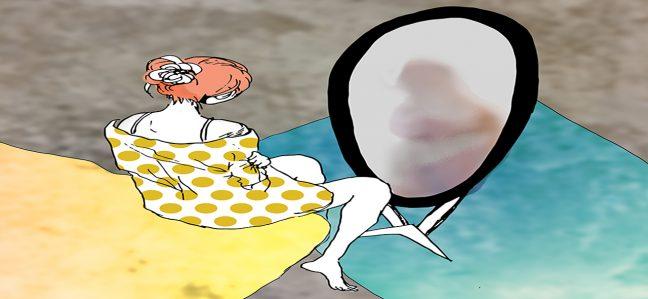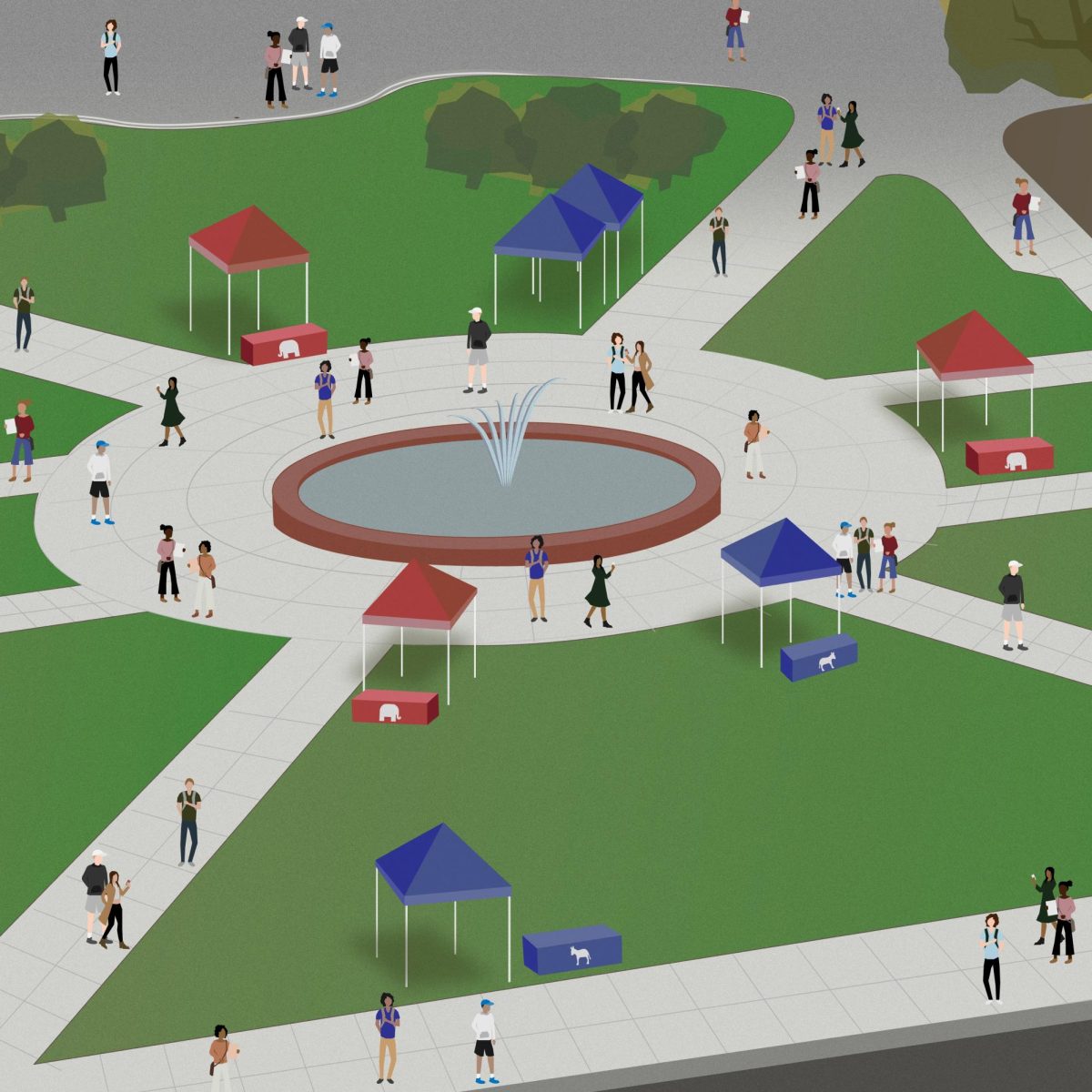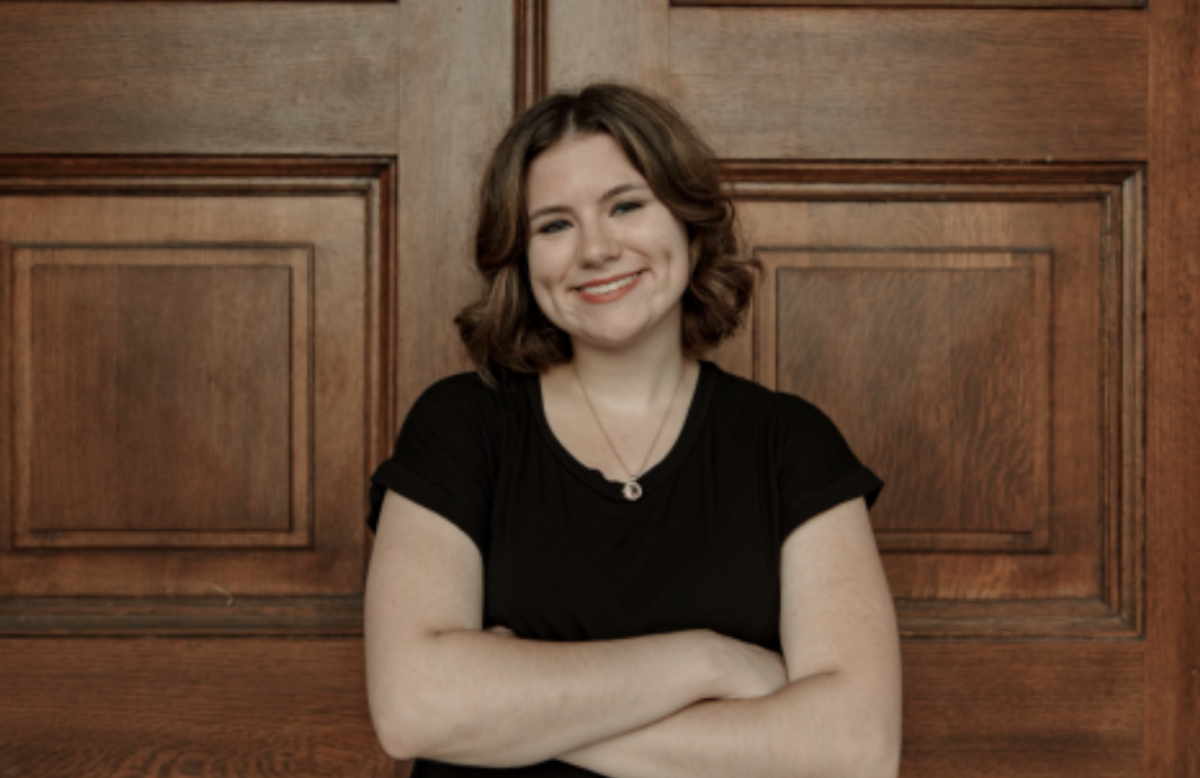Editor’s note: This piece contains accounts of sexual assault.
Each survivor of sexual assault is different, and each has felt the impact of their assault in different ways.
For recent University of Wisconsin graduate Anna*, coming to campus for the first time marked the start of her independence. On the fringe of being an adult, she wanted to make memories, sing and have more sexual experiences.
It took only one party and one person for her to lose touch with herself.
“I had this residual feeling of not feeling like a person,” Anna said. “I felt like an object.”
After the incident, Anna felt she was far too young to be able to fully comprehend what had happened to her. Describing the experience as “traumatic” and “difficult to rationalize,” she said she took nearly a year to acknowledge everything.
Anna is part of the one in four women who have been assaulted during their time at UW, according to a 2015 survey conducted by the Association of American Universities. Despite representing a significant population of sexual assault survivors, this statistic doesn’t convey the nuances nor the individuality of each experience.
Beth* was 17 when she was assaulted. Now a senior, she had been drinking at a party in her freshman year but said she may have had “too much.” One second she was with her friends, the next she was naked with a stranger on top of her.
Unable to make much sense of the situation, she started crying and did not say anything to stop the perpetrator. She woke up the next day, feeling ashamed and sad.
“I didn’t want anyone to find out because of the stigma that might make people treat me differently,” Beth said. “I blamed myself for getting drunk.”
Alcohol forms a key part of the narrative in many stories of sexual assault. Familiarity with the perpetrator also looms as a large factor.

An ex-boyfriend sexually assaulted UW junior Nancy* after she went to his home in search of a place to stay late at night. She had been with him for three months, during which he had been physically and verbally abusive. After she decided to put a stop to it, they remained friends.
Nancy tried to stop the perpetrator, but he did not listen to her until five minutes after he began assaulting her. Despite knowing about sexual assault, she said she “blanked out” when he started assaulting her. After the incident, she said he pretended like “nothing had happened.”
“We hear a lot of stories, but perpetrators are usually people we know,” Nancy said.
Following the incident, Nancy said she went into depression, had dreams involving sexual assault and rape and began attending therapy. She did not categorize the incident as sexual assault until her therapist helped her come to that realization.
These narratives are only the tip of the iceberg in a survivor’s process of recovery and reclamation. While survivors have described this ongoing journey as difficult and hard to forget, many have shared their stories to become stronger and to empower those who are or have been in their shoes.
Recovery is far from linear
Beth said she could not tell anyone except one friend about her assault. She found that she was neglecting herself, went into depression and skipped school. The incident took away her self-confidence and made it difficult for her to trust anyone till at least three years later.
“A guy I barely knew took advantage of me, how do I know someone else won’t,” Beth said.
UW senior Frankie Hermanek was 17 years old when she went out with some friends and two others who she only met that night. They were all drinking and she eventually ended up laying on the ground with one of her acquaintances next to her. Her friends had left, much to Hermanek’s confusion.
The two acquaintances then proceeded to sexually assault Hermanek. She said she “never said no,” but kept repeatedly telling them she was unsure of what was happening. Eventually, she completely blacked out.
“It was very traumatic and surreal for me and it took a long time to process,” Hermanek said. “In my heart and in my mind, I knew something very wrong happened.”

Each survivor takes a different path to recovery. UW junior Elizabeth Drayna said she felt “completely fine” after her assault, which worried her because she felt as if she was betraying other survivors.
Drayna, whose perpetrator was a friend, said she was able to forgive him and move past it. But her reaction made her feel like she was portraying sexual assault as something enjoyable and “not that bad.” Drayna said she eventually realized there is no correct way to respond to these situations and feelings can change in the future.
“Every situation is different and me being okay isn’t validation for people to assume everyone should be okay,” Drayna said, “And just because you feel okay at first doesn’t mean you have to feel okay later on.”
Drayna said it is also important for survivors to remember that just because they agreed to do something first does not mean they have to agree with it every time. Consent is not the same as harassing someone until they give in or do something till they stop fighting back, she said.
Institutions supporting sexual assault survivors
Because of the differences between each sexual assault survivor’s experiences, institutions have to be able to respond to all kinds of situations. But not everyone chooses to report their assault and many find reporting unsatisfactory, as in Mary’s* case.
Mary, a UW junior, took some time before she decided to report her assault to authorities. When she did, however, she said she regretted it because her privacy was not protected, she was not treated as expected and was misled.
University Health Services violence prevention manager Samantha Johnson said this can be explained through the relatively common phenomenon of “institutional betrayal.” When a student is assaulted at campus, which is a place most consider home, and the response is slow or biased, they feel “betrayed,” Johnson said.
Johnson said UHS provides free and confidential advocacy counseling service for students, which has been well received. Not everyone may choose to seek support, but it is always there for them, she said.
“We cannot eliminate the harm done, but we can help support you,” Johnson said.

UW also works with the Dane County Rape Crisis Center and Domestic Abuse Intervention Services to provide legal advocacy and external support services. Johnson said some students find it more comforting to seek help outside of UW through such organizations because it lessens the feeling of institutional betrayal.
Janie Felton, chair of UW Promoting Awareness, Victim Empowerment, said peers and others who support survivors help bridge the gap between survivors and their healing. Only 20 percent of survivors seek formal services while most simply tell their friends. Survivors and those who support them are encouraged to attend PAVE’s workshops and self-care events, she said.
Felton, who started working with PAVE three years ago and ‘fell in love with its mission,” said the organization tries to reach survivors through survivor-centered messaging in emails and promotional materials.
“We strongly speak out against victim blaming but also want to center survivors experiences and make sure we’re really professional and clear in our messaging,” Felton said. “There’s no one way to deal and support people and however they choose to feel.”

Felton also said men, LGBTQ+ people and people of color face additional limitations and stigma to seeking emotional support after sexual assault. She said PAVE has been working with organizations like Women of Color Network and the Wisconsin Coalition Against Sexual Assault to ensure that its programs are geared to help these groups break barriers.
Male survivors, voices against sexual assault.
While the majority of sexual assault survivors are women, men can be victims as well. According to the 2015 AAU survey, approximately 5 percent of undergraduate male students across the nation were victims of sexual assault.
One 20-year-old Asian UW student, Tim*, said he had been assaulted by an older man when he was 18. At the time, he did not categorize it as sexual assault because he was “not raped.”
Years later, however, Tim’s definition of assault changed.
The older man invited Tim to his home one night and brought out alcohol. Tim said he had never had alcohol before, but wanted to try some. The perpetrator kept pouring drinks for Tim, but did not drink any himself.
Not knowing his own limits, Tim said he was largely unaware of what was going on. After a while, the older man started getting physical with the survivor and tried to rub his thighs, hug and cuddle him.
“At first I thought it was fine, then it got a little weird and then more weird,” Tim said. “It really was just creepy and after he did it multiple times, I felt I had to get out.”
Many survivors reported they did not think they were assaulted or thought their assault was justified. Beth felt her being drunk justified her assault. Tim said his perpetrator was at least “nice” because he dropped him home.
Despite realizing that the older man sexually assaulted him, Tim was afraid to tell others what happened because they would not consider him “man enough.” He said his Asian parents would “strongly disapprove” of this encounter. He kept the incident a secret for over two years.
Tim is not the only one who finds talking about sexual assault difficult. Colleen Whitley, president of Men Against Sexual Assault, said many men do not know where to start when it comes to talking about sexual assault. They are afraid to speak out in fear of saying something wrong, she said.
“It can be a somewhat awkward topic,” Whitley said. “Elements of the issue keep men quiet and make them stay away from it.”

Men are disproportionately sexual assault perpetrators, so some also feel guilty and do not know how to move past it, Whitley said. One of their workshops, “We’re Better Than That” contains peer-to-peer discussion which aims to facilitates honest conversation without as much hesitation.
“We’re Better Than That” focuses on having an open environment for discussing everything from gender norms to making sexual assault everyone’s issue, Whitley said. While elevating women’s voices and the work of other organizations against sexual assault, “We’re Better Than That” hopes to get as many men involved as possible. As a female president, Whitley said this can be challenging, but she is up for it.
“I think it’s interesting I have to recruit a lot of my male friends to get males involved so that it isn’t just a male-neutral issue,” Whitley said. “It’s equally their issue and everyone’s issue.”
No one should heal alone
Hermanek said seeking support and talking to professionals can be immensely helpful for victims to understand that it was not their fault. She said talking about her own experiences has helped her become stronger and be there for her friends when they need her.
“The best thing anyone’s told me was that you can call it whatever you want if something happened to you,” Hermanek said. “But you don’t have to label it for it to be traumatic because if something was traumatic for you, nobody gets to tell you it wasn’t.”
Fellow students can also be a valuable asset in helping survivors recover from their sexual assault. UW senior Bri Bulski organized “Take Back the Night,” a run that raised $4,700 for efforts empowering sexual assault survivors regardless of gender.
After an acquaintance drugged and sexually assaulted Bulski when she was 17-years-old, she said she wanted to ensure that this did not happen to anyone else. Bulski said survivor advocacy gives her a discrete way to heal and helps her do good for the community.
“The healing process is fluid and it’s not always forward moving and it’s normal to be stagnant,” Bulski said. “It’s okay to not be okay.”
Bulski said advocacy is difficult but it makes sexual assault seem less “icky.” She said she wants people to feel comfortable listening to her stories so that they might share theirs one day.
Mary turned to her friends for support as she underwent the formal reporting process. While some friends took the perpetrator’s side, she found she did have a lot of people behind her. It was not easy, but she said she let go of the “toxic” people in her life.
“Healing is not a linear process,” Mary said. “You’ll never forget, but if you choose to let go of the wrong people, recognize you need help, seek it and have the right people around, it’ll get better.”
*Names have been changed to protect the privacy of sources who have been assaulted.














